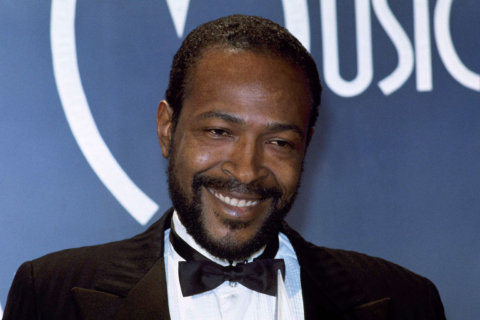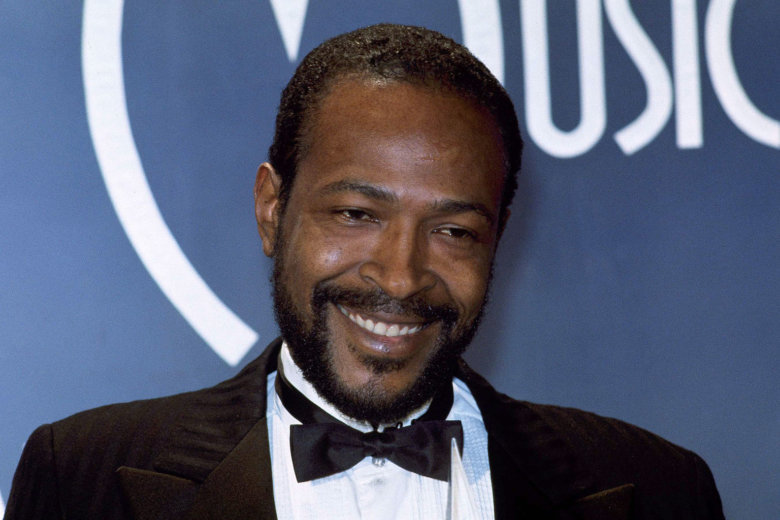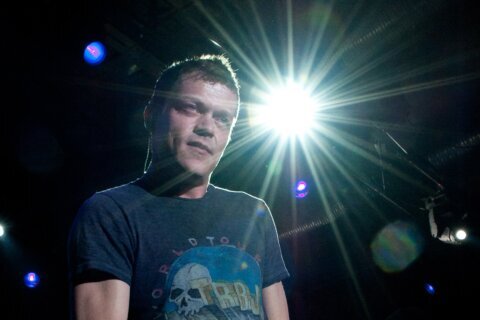
As a child, musician Devon Gilfillian remembers his father, a professional wedding singer, harmonizing with Marvin Gaye’s iconic “What’s Going On” album in their living room. While the groove of the music was palpable, the lyrics were lost on a young Gilfillian.
The haunting questions of the song resurfaced to Gilfillian, now 31, following the murder of George Floyd. In a recent interview for a new CNN documentary about Gaye’s work, titled “What’s Going On: Marvin Gaye’s Anthem for the Ages,” the Grammy-nominated artist and activist recalled rediscovering the album just before heading to a protest in Nashville last summer.
“I saw people with instruments, I saw people with drums, and I was like, man, I want to bring my guitar and I’m like, ‘What am I going to sing?”
His song choice, “What’s Going On,” was easy, but performing it was not.
“I went home, picked the guitar up and started strumming through it. And immediately I just started crying,” Gilfillian said.
It was an epiphany, a lyrical catharsis delivered from one man to another, a half-century later.
“He’s saying everything, mother, mother, there’s too many of us crying, brother brothers, too many of us dying. Father, we don’t need to escalate. War is not the answer,” Gilfillian said. “It hurt to sing those words. I was legitimately sad and upset and angry.”
That was the moment Gilfillian caught up with the message, “I felt like Marvin was like, yo, see, this is what I was trying to say.”
Gilfillian has since released a cover album of “What’s Going On,” paying homage to a man who was pleading for the world to listen, tackling controversial issues, perhaps, before some could hear them.
“Who the hell was writing songs about the ecology?” music critic Nelson George said in a conversation for the special. “(‘Mercy, Mercy, Me’) is a song about environmental racism in 1971.”
“I’m not sure, in 1971 people wanted to hear that we were burning up the planet and we were polluting the oceans.” Marvin Gaye biographer, David Ritz, told CNN for the same project. “He got the message across by grooving it up so craftily until you want to hear it over and over and over again.”
“His melodies were like a voice of cry.” Sheila E., who toured with Marvin Gaye in 1982-83, says in the film. “(He) talked about the ghetto, talked about injustice, talked about the war. But he wasn’t yelling and protesting.”
Gilfillian describes Gaye’s music as a subtle seduction.
“He makes you hear the lyrics, which are very important and potent. But then he tricks you into listening to them with his music, you know, by making you move and feel and hypnotizing you. And at the same time, you don’t know you’re actually getting woke.”
For Ritz, “What’s Going On” was an awakening, a healing of sorts.
“The country was full of angst. The country was full of turmoil. The country was full of fear. The country was full of anger. And we needed to be calmed down. We needed to chill,” Ritz said.
Turmoil that remains.
Gilfillian, for his part, is hoping to help change that. Proceeds from sales of the vinyl recordings of his cover work will be donated to a non-profit organization which works to remove obstacles to the democratic process in communities of color.
“I think the next generation has the power to absolutely change this world because they don’t give a damn, they see something that’s wrong and they’re like, that’s wrong. And they point it out,” Gilfillian said.
And he’s grateful to Gaye for pointing the way.
“When I listen to [‘What’s Going On’], it comforts me, you know, it makes me feel like Marvin’s up there, and he’s like, no matter what we’re going through, you know, in this darkness, I feel like at least we do have these songs.”








